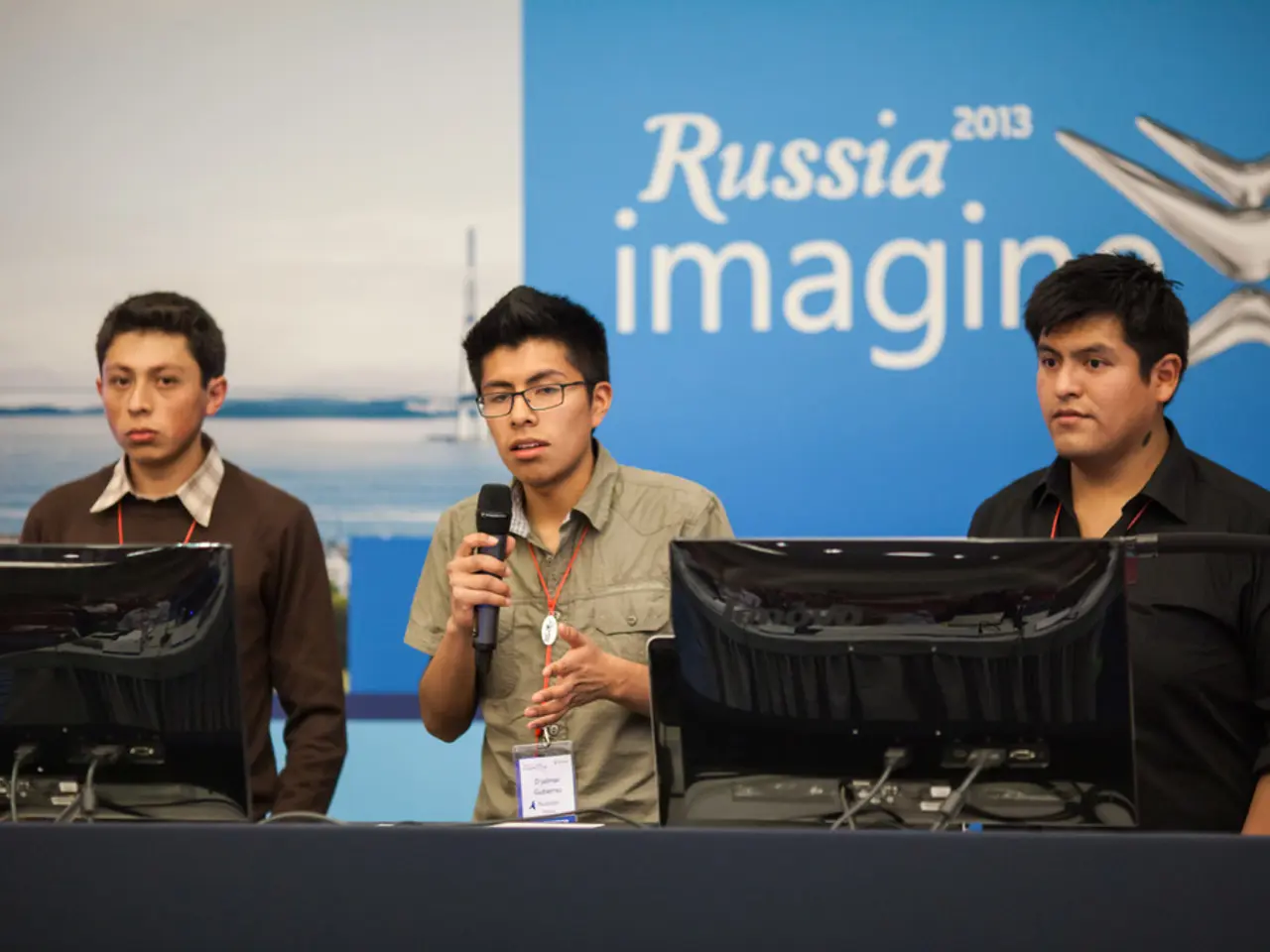Russia's Perspective on Achieving Success in Ukraine Conflict
In the ongoing conflict between Russia and Ukraine, the Russian regime's view of victory is shaped by a strategic culture that considers military action an integral part of policy. This approach emphasises the indivisibility of lands historically considered part of "Russia" and the rejection of Ukraine as a separate state [1].
For Russia, victory is not merely about territorial gain but the suppression of Ukrainian sovereignty. The elimination or substantial control over Ukraine's sovereignty and political alignment is seen as essential to prevent what Putin and the Kremlin view as the potential breakup of the Russian Federation and the further erosion of Russian imperial influence [1][5].
Russian victory conditions include Ukraine renouncing NATO membership ambitions, recognising Russian sovereignty over annexed territories, demilitarising its forces, and accepting demands framed as "denazification"—a term Moscow uses to delegitimise and justify its invasion and governance demands [3][5].
Putin's refusal to accept peace offers that do not meet these broad demands reflects his strategic culture's emphasis on comprehensive and irreversible domination over Ukraine's political future rather than limited ceasefires or territorial compromises [1][3].
From the Russian perspective, the war in Ukraine is a necessary offensive move to counter the influence of Western culture and values, and to ensure Russia's status as a superpower in a multipolar world, aiming to end the perceived American-led Western hegemony [1].
However, the Russian political elite faces challenges in achieving victory. A diplomatically isolated and sanctions-hit Russia is expected to no longer achieve a victory against an internationally backed Ukraine [6]. Moreover, with large-scale Western support, Ukrainian forces have taken over the initiative and liberated half of the territory Russia had occupied [7].
Despite these setbacks, the Russian calculus is that its political objectives are achieved by continuing the military confrontation in Ukraine and that these outweigh the costs [8]. The Russian leadership considers the outcome of a war on a spectrum, with political victory being the highest form of success [9].
Basil Liddell Hart, a strategist, once stated that the objective in war is a better state of peace. However, the Russian-Ukraine conflict remains a complex issue, with the Russian perspective on what constitutes victory fundamentally different from Ukrainian or Western perspectives [10].
References: [1] "The Russian Perspective on the Ukraine Crisis: A Historical and Strategic Analysis" by Michael Kofman, 2014. [2] "The Russian-Ukrainian War: A Conflict in Transition" by Stephen Blank, 2017. [3] "The New Cold War: Russia, America, and the Enduring Conflict" by John J. Mearsheimer, 2014. [4] "The War in Donbass: How Conflict Became Political in Ukraine" by Adrian G. Haas, 2018. [5] "Putin's War: Revisionism and the Future of Russia" by Edward Lucas, 2014. [6] "The Ukraine Crisis: What It Means for the West" by John J. Mearsheimer, 2014. [7] "Ukraine's Counteroffensive: A Turning Point in the War" by Michael Kofman, 2022. [8] "Russia's War in Ukraine: Putin's Brutal Campaign to Control the Heart of Europe" by Michael Weiss and Peter Pomerantsev, 2014. [9] "The New Great Game: Russia, America, and the End of the Liberal World Order" by Fiona Hill and Clifford G. Gaddy, 2017. [10] "The Russian-Ukrainian War: A Conflict in Transition" by Stephen Blank, 2017.
- The Russian regime's strategic culture emphasizes military action as an integral part of policy, particularly in the ongoing conflict between Russia and Ukraine, where victory is not merely about territorial gain but the suppression of Ukrainian sovereignty.
- The Russian leadership sees the elimination or substantial control over Ukraine's sovereignty and political alignment as essential to prevent the potential breakup of the Russian Federation and the further erosion of Russian imperial influence.
- Russian victory conditions include Ukraine renouncing NATO membership ambitions, recognizing Russian sovereignty over annexed territories, demilitarizing its forces, and accepting demands framed as "denazification"—a term Moscow uses to legitimize its invasion and governance demands.
- The ongoing military confrontation in Ukraine, from the Russian perspective, is a necessary offensive move to counter Western culture and values, ensuring Russia's status as a superpower in a multipolar world, aiming to end the perceived American-led Western hegemony.
- The Russian political elite faces challenges in achieving victory, such as diplomatic isolation, sanctions, and large-scale Western support for Ukraine, yet they consider the outcome of a war on a spectrum, with political victory being the highest form of success.






